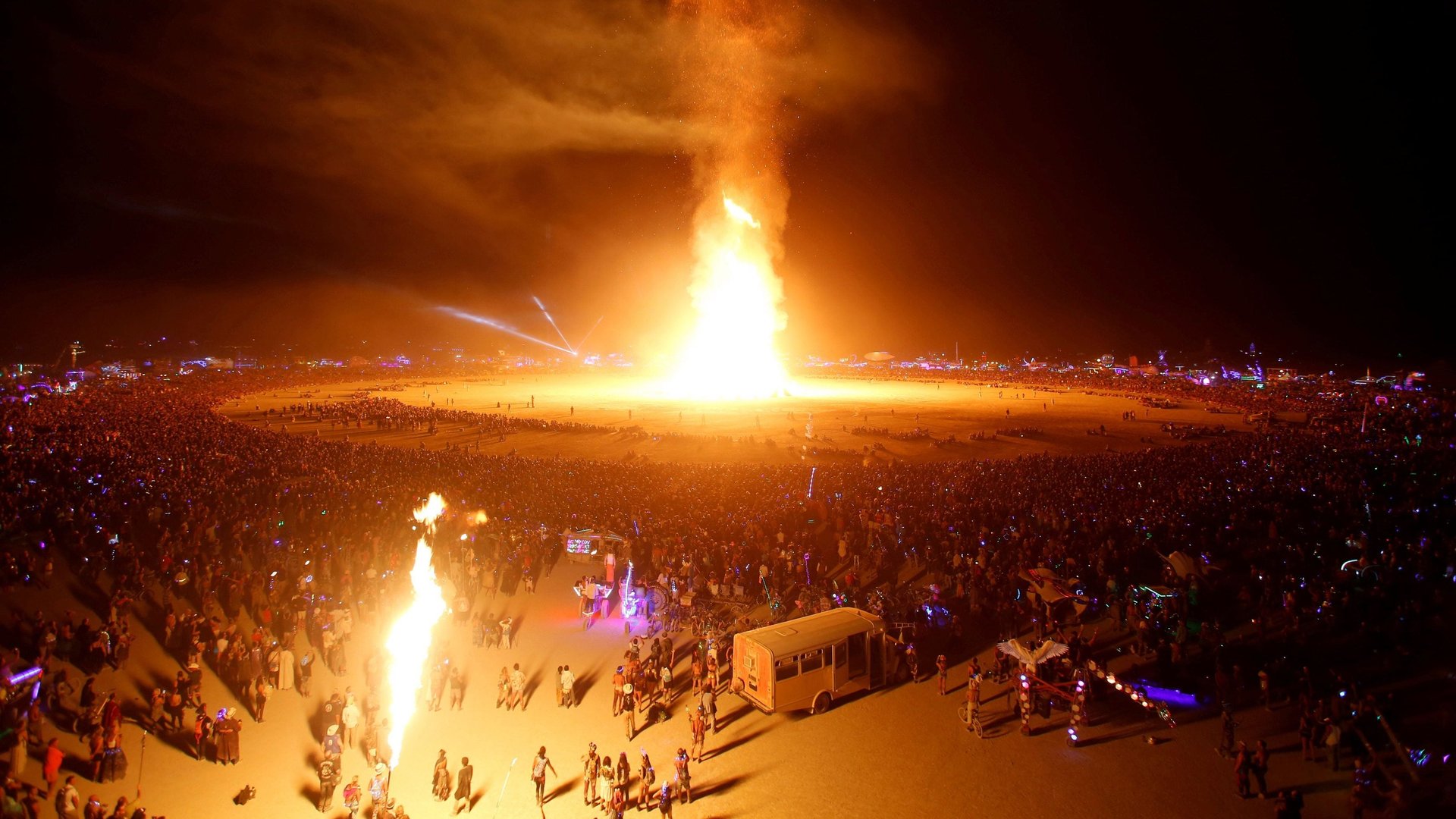The best description of Burning Man comes from an Episcopalian priest
If Instagram and Facebook are any indication, Burning Man is little more than a vapid mix of top-tier entertainment and hippy zeitgeist, all taken to the extreme. But while there’s no doubt the late-summer festival is an extraordinary feat of event production—and over-the-top fashion—its growing popularity has far more to do with defying other festivals’ undertone of consumption than it does with, say, glitter. To date, no one has articulated that quite as well as an Episcopalian priest.


If Instagram and Facebook are any indication, Burning Man is little more than a vapid mix of top-tier entertainment and hippy zeitgeist, all taken to the extreme. But while there’s no doubt the late-summer festival is an extraordinary feat of event production—and over-the-top fashion—its growing popularity has far more to do with defying other festivals’ undertone of consumption than it does with, say, glitter. To date, no one has articulated that quite as well as an Episcopalian priest.
In 2015, during a post-burn sermon with parishioners at Trinity Cathedral in Sacramento, California, Rev. Brian Baker called the 70,000-attendee event “a taste of the kingdom of heaven,” thanks to its commitment to 10 core principles, among them radical inclusion and immediacy. Baker, who first attended Burning Man with his 22-year-old daughter in 2015, also credited the festival’s no-commerce gifting ecosystem.
“About halfway through, I realized I was on my own spiritual retreat, and I was experiencing things in that community I believe the church is aspiring to be,” Baker said. “An authentic community where everybody has your back, a place of open generosity where people were ready to share and give, a place of profound non-judgment where people loved one another no matter what their crazy was.
“It gives you a taste of the kingdom of heaven, if you will, that raises your own expectations as to how you’re going to live, how we can live with greater love for one another.”
Indeed, unlike the failed Fyre Festival—a millennial-geared marketing campaign masquerading as authentic experience—Burning Man attracts people from all walks of life. At its core, the temporary city serves as a remarkable incubator for personal and collective growth and transformation, something that would never be possible if mass consumption were the driving factor.
A video of Baker’s sermon, titled “Welcome Home,” has attracted more than 37,000 views on Vimeo; it even earned him a TEDx talk in 2016. While at Burning Man, Baker traversed the desert playa with holy water and oil, blessing anyone who welcomed it. He acknowledged in the sermon that “some people are there just to party,” but said that for many,” there was some kind of spiritual yearning.”
Burning Man remains something of a mystery—or a target of mockery—among those who haven’t made the pilgrimage to Nevada’s Black Rock desert. But Baker’s awe of the heightened human connection at the festival is universal for those who attend it. It’s part of the fabric of Burning Man, and why it has such a magnetic effect. That camaraderie is something I have experienced personally in the three years I’ve trekked to the event, and it’s part of why I returned again this year.
Burning Man is an opportunity to uniquely engage with the deep soul craving we all share: to live life within a community that doesn’t ask anything from us other than to be ourselves.
Watch Baker’s full sermon here.
Correction: An earlier version of this story said that Baker’s sermon took place in 2016; it was 2015.